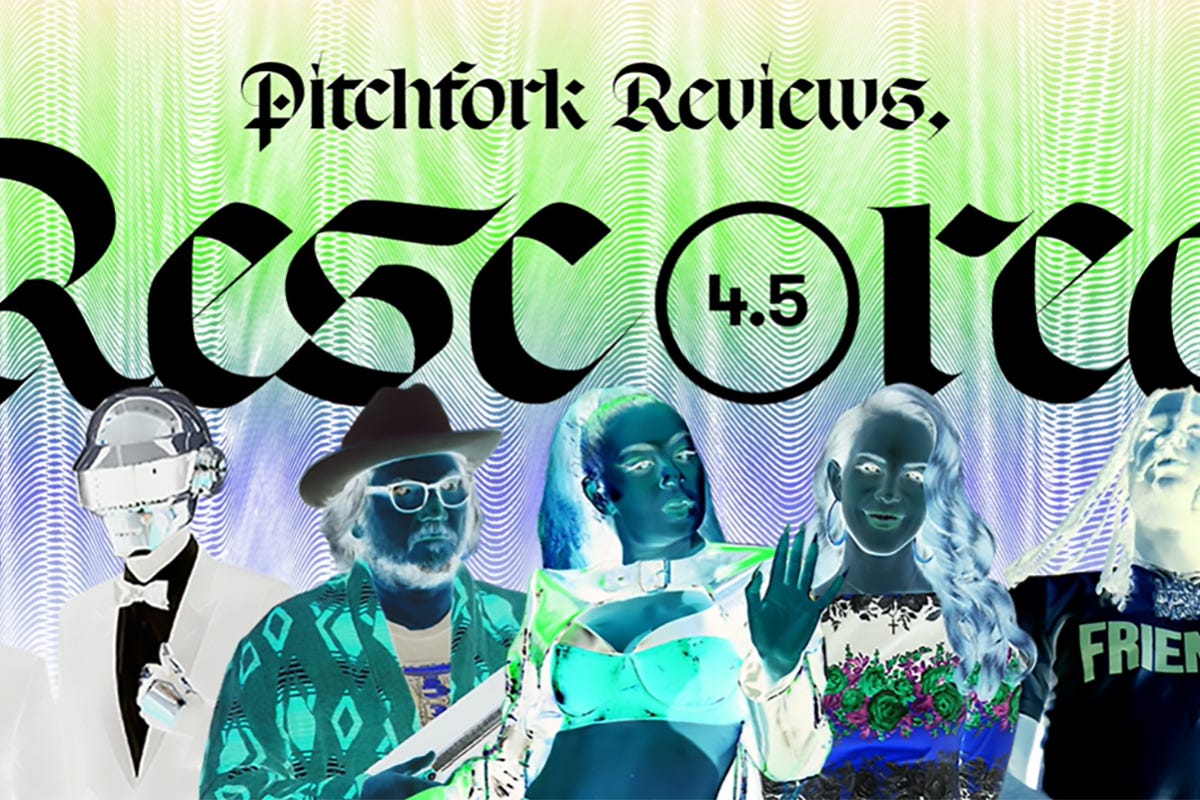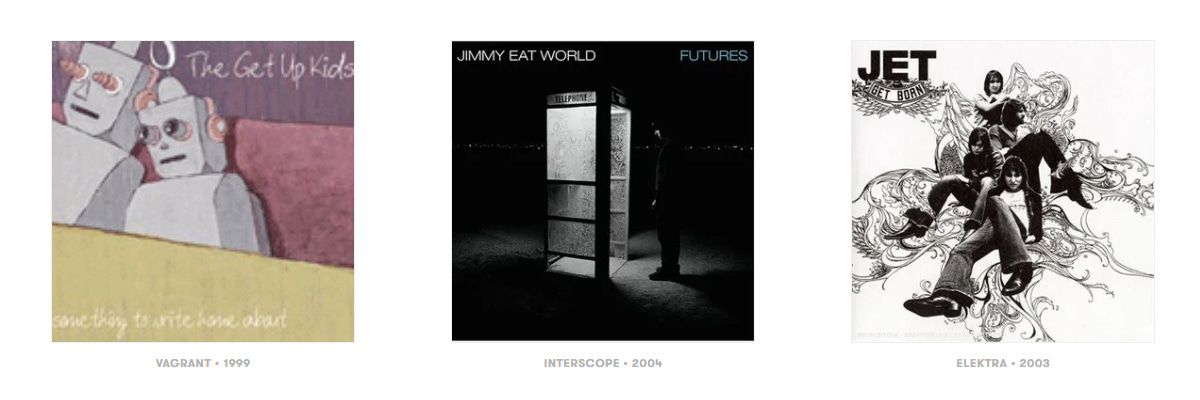Okay, look. I know I covered this stuff for the newsletter last month. And I wasn’t planning on making this a twofer. But I’ve been away on vacation having a very stressful time on sandy beaches and road-tripping through rainforests in a rental van and generally avoiding the Internet at all costs. So, I needed to play catch up on music industry happenings and this one pretty much fell into my lap. The last thing I want this column to be is just ‘assorted Pitchfork whinings.’ But, anyway, here we are and so here we go again.
I don’t make rules about the discourse, people.
After the eruption of online furore surrounding last month’s Donda review, Pitchfork have seen fit to go back through their historical archives and dredge up questionable reviews, gifting them with new ‘non-canonical’ scores.
The list of 19 ‘Pitchfork Reviews, Rescored’ is a mostly harmless selection of contemporary artists: PJ Harvey, Chief Keef, Daft Punk, Prince, Grimes, Lana Del Ray, etc. Some album scores go up, others go down. And as the staff writers themselves admit, this exercise is all “hypothetical [and] not canon, but rather a fun little diversion, a conversation-starter brought to you by the individual grievances of the Pitchfork staff.”
It’s almost like music journalism and criticism is a form of subjectivity-in-action:
Artistic taste as an aesthetic category is cultivated and is very much the product of historical context, socio-political factors, and cultural conditioning.... Everyone has their own taste and everyone has different personal experiences which inform that taste. Yes, even Pitchfork writers.
Which, unsurprisingly, has made for some interesting commentary:
Alongside some excellent feedback discourse:
Which got me thinking: If the Pitchfork staff can engage in this kind of non-canon “revisionist history,” well, why can’t I? As I said in my last column:
In an ideal world, reviews would stand not on some arbitrary percentage figure or decimal system or star rating, but on the passion of the prose and the strength of a reviewer’s erudite argumentation for the merits of the music as art that generates an emotional response. But we don’t live in that world.
So, with that very real, non-ideal world in mind, here are six hypothetical, non-canon, Rescored reviews from yours truly. Enjoy.
Andrew W.K. – I Get Wet
0.6 > 6.6
Okay, I have no idea how the decimals work, so I’m just rounding up integers. (Deal with it.) This review is embarrassing. It’s wildly incoherent and an absolute chore to read. Mr W.K.’s debut is first compared to bubblegum pop before it’s quickly denounced as “evil in its purest form.” There’s also a mystifying section that implies some kind of royalty conflict with Def Leppard, Gary Glitter, and the fucking Baha Men. Excuse me, sir? Grow up. At least Ian Cohen had the good sense to retroactively grant the album an 8.6 for its tenth anniversary. But even then, I disagree on that score as well. In essence, I Get Wet remains a fun, inoffensive pop-punk record. That’s it. Not great, not terrible. (Original Review)
Metallica – St. Anger
0.8 > 2.8
Snare tone notwithstanding, it’s pretty hard to find an album actually deserving of a real bonafide 0.8. I mean, if perfect 10.0’s are reserved for brilliant, instant classic, genre-defining works of musical art, then surely the 1.0’s and below wouldn’t even be music at all. Instead, they’d be reserved for nothing but harsh static and fart noises and racist diatribes. Right? Say what you want about St. Anger but it is music. It’s just really bad, awfully produced, nu metal-flavoured trash. And now the score reflects this fact. You’re welcome. (Original Review)
Panic! At The Disco – A Fever You Can’t Sweat Out
1.5 > 7.5
“It’s sad that this is what emo has become.” Reading that line in 2021, as we sit in the midst of not the third, or fourth, but the fifth wave of emo, it’s hard to take such dire sentiments seriously. Yes, P!ATD do not sound like Rites of Spring. Boohoo. Emo, like all musical subgenres, is open to interpretation. Sure, AFYCSO is not going to inspire some DIY act on a stage in someone’s basement any time soon, but it’s still fun and catchy and engaging. Brandon Urie & Co had a glitzy and flamboyant vision for what the melding of pop and emo might sound like, and it remains highly influential to this day. (Original Review)
The Get Up Kids – Something to Write Home About
2.0 > 7.0
This is another highly questionable review. There’s a weirdly conservative argument against A.D.D. for some reason, and then it pivots to saying that anything can be pop. Okay… cool. Then it lambasts the band for sounding like “unimpressive” mainstream pop but then also says their decision to not sign to a major label is inept… presumably because that would make them ‘actual’ pop and then somehow illegitimate and above rebuke? It’s mostly just dismal argumentation as word salad stuffing. STWHA is a great album and one of TGUK’s best. It was a breakthrough record for second-wave emo and helped usher in what would follow for the genre in the 2000s. They were done dirty with a 2.0 and I demand justice. (Original Review)
Jimmy Eat World – Futures
3.0 > 7.0
Speaking of done dirty, poor Jimmy Eat World. Pitchfork has (mostly) had it in for the group for much of their career, and along with the equally shitty Bleed American review, this one is another kick in the teeth. Sure, Futures doesn’t hold a candle to its predecessor, but it’s still their second-best record of the millennium and definitely not a “rotten onion… of foulness.” This record has ample bangers and the Gil Norton production is slick and shiny, packing more punch than most mid-2000s radio rock. The emo hungover had abated and this was Jimmy Eat World struggling to figure out their next move. Growing pains can be troublesome but they’re rarely “mundane.” (Original Review)
Jet – Get Born
3.7 > 3.7
Yes, that’s right. You read that correctly. No score change! They got it right the first time. Well… kind of. Jet do indeed suck and Get Born is trash of the highest order, with songs that regrettably soundtracked much of my adolescence in a small country town with one radio station and poor Internet access. But my quibbling here is not with the score but the review content itself. What’s meant to be a tongue-in-cheek slice of dialogue between a venue operator and Jet as pugnacious rockstars is severely undercut by little to no understanding of how Aussies actually communicate. It’s not “bitches,” it’s “sheilas.” It’s not “man,” it’s “mate.” It’s not “Americans,” it’s “Yanks.” If you’re going to shit on us, at least do it with fair dinkum, true blue style, you bunch of bloody drongos. (Original Review)









